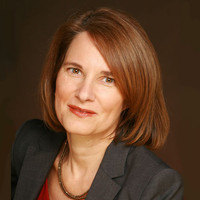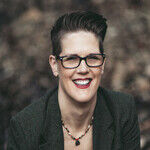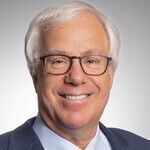WASHINGTON — An American woman in a British family — not a recipe for felicity. Take it from Meghan and me.
Watching the riveting Oprah Winfrey interview with Meghan and Harry, the Duchess and Duke of Sussex, I felt memory stir deep. They opened doors behind the scenes of an enchanted life in the palace, a place she felt miserable and alone, even suicidal. A bright flower with no water or sun.
Coming from California, where people become fast friends in five minutes, Meghan didn't understand the rigid rules of her new in-laws. They returned the favor, having no clue what to do with a biracial American actress who was, in an English expression, a strong cup of tea.
How would a feminist fit in with "the firm"? Good Lord. Add race to that equation and it explodes.
Being horsey country folk, perhaps they thought they could break Meghan in. They did so well with spirited Diana, the princess of Wales, Harry's mother who died in a car crash in Paris.
About Diana's age, I was married to a Londoner. The shining son in a Hampstead family and a Cambridge man who studied classics and law. We lived there in London NW3, which I thought was Anglophile bliss. Poets, artists and writers lived in that precinct.
I got my first journalism job at the CBS News bureau in London, on Hyde Park and near Knightsbridge. A black London cab picked me up when I worked the early morning shift. The world's news reported to London. Then we told the New York foreign desk what was going on when they woke up.
Life looked good on the outside. Happily ever after?
No, no, no. I wanted to tell Meghan, that's what counts: how things look, not how they are. I made that mistake. I heard the hurt in her voice, saying she was not all right and needed help, medical help. She felt like an outsider, second-class in Britain's first-class family. Silent snubs are like smoke and mirrors.
The new duchess didn't know what she didn't know, like the national anthem. We Americans like to talk about the "truth" of things more than the English, especially the royals, do.
The British make the best spies and actors in the world because they see it as a stage.
My husband's family was not as ready to love me — a foreigner, an upstart American. I was all set to join and be one of the family. My own was an ocean and a continent away in California. British in-laws "reserved" judgment on me through many rounds of pleasantries.
What we Americans are slow to learn is the polite pleasantries are important, for form's sake. But they don't mean you are friends or family yet. The art of conversation is not dead in London. I enjoyed the clever verbal jousting. Irony was in high demand at dinner parties.
But it takes time to be a hit with family and society. One could wait six weeks for someone to "ring you up" with an invitation to Sunday lunch — always a roast chicken with parsnips.
When I lived there, we Americans loved the British more than they loved us. They saw us as loud (true) and rather obvious.
With plummy voices like Harry's, the English had the benefit of the doubt with us. We Americans had the burden of proof. Even now, my pulse quickens at hearing an English accent. When I was recently interviewed by BBC World News, I took smelling salts.
My urbane father-in-law was puzzled at me keeping my last name. I could be Jamie Bondy, after all.
I admire Meghan's moxie in speaking her truth for the world to hear. Even more, I'm awed by Harry's standing by his wife in light of royal opposition. He had to go against everything he was taught and groomed for. The prince gave up his world.
It took me longer to leave, but I was in my 20s then. When I saw my English ex again, years later at a party, he crossed the room.
"Am I allowed to do this?" He bussed me on the cheek.
Disarming, darling.
Jamie Stiehm may be reached at JamieStiehm.com. To read her weekly column and find out more about Creators Syndicate columnists and cartoonists, please visit creators.com.






View Comments